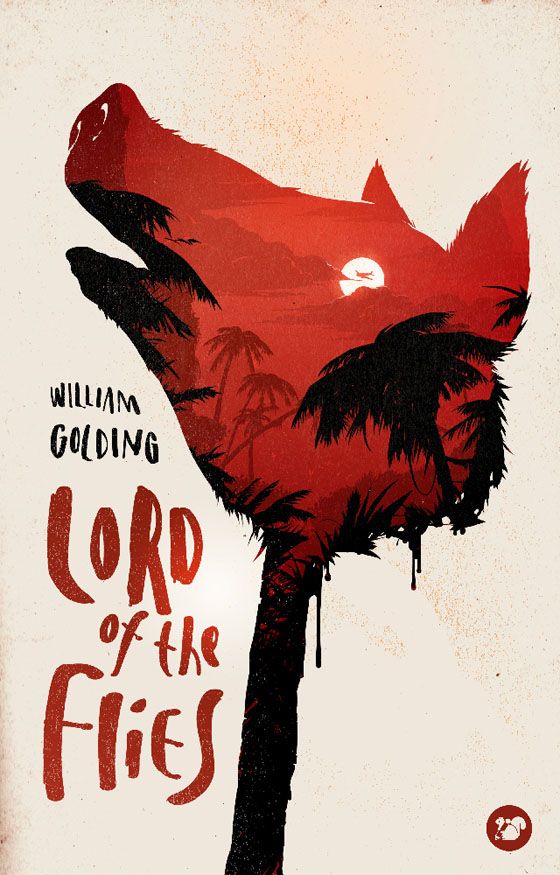In William Golding’s allegorical masterpiece, “Lord of the Flies,” chapter 9, entitled “A View to a Death,” marks a pivotal turning point where the fragile semblance of civilization among the stranded boys crumbles into utter savagery. As fear and brutality envelop the island, the echoes of their innocent childhood fade into a desperate scramble for survival.

Image: muchwallpaperphotos.blogspot.com
Amidst the lush jungle’s primal wilderness, Ralph’s rational leadership wanes as Jack and his savage tribe of hunters ascend to dominance. Their reign of terror culminates in the brutal murder of Simon, an outsider and visionary who sought to bring peace. Simon’s tragic demise serves as a stark testament to the profound darkness that can reside within human hearts when stripped of societal constraints.
Ralph’s Paradise Lost: The Broken Dream of Civilization
Ralph, once the beacon of reason amidst the chaos, bears the weight of his failed attempts to establish order. As his authority wanes, he becomes an outcast, hunted by Jack’s hordes. Yet, even in his isolation, Ralph’s inextinguishable flame of hope flickers, a testament to the enduring battle between civilization and savagery.
Jack’s Twisted Ascendance: The Descent into Darkness
Jack’s transformation from idyll seeker to ruthless tyrant mirrors the island’s own metamorphosis into a bloody playground. Consumed by his lust for power, Jack’s tribe succumbs to a primitive tribalism, shunning reason and embracing fear. Their savage hunts, once a means of sustenance, become a brutal sport, a gruesome testament to their descent into darkness.
The Killing of Simon: A Pivotal Moment of Tragedy
Simon’s murder, orchestrated by Jack’s frenzied tribe, becomes the cataclysmic apotheosis of their savagery. Mistaken for the enigmatic “beast,” Simon’s pleas for understanding are drowned out by the primal roars of the mob. His death reverberates through the island, symbolizing the utter vanquishing of innocence and compassion.

Image: www.bookishelf.com
A Bleak Reflection of Human Nature: Childhood Corrupted
The descent of the boys into savagery mirrors the dark underbelly that lurks beneath the veneer of civilization. Golding’s bleak portrait exposes the fragility of our civilized constructs and the ease with which our inner demons can seize control. Their corrupted childhood offers a profound warning about the destructive power of unchecked savagery and the enduring struggle between the forces of good and evil within the human soul.
Expert Insights: Understanding the Descent
Dr. Karen Furbush, a developmental psychologist, posits that “the isolation and regression the boys experience exacerbates their primal instincts, leading to the rapid deterioration of their behavior.”
Renowned anthropologist Dr. Brian Ferguson adds, “In the absence of external controls, fear and power imbalances amplify, eroding any semblance of society or morality.”
Practical Tips for Countering Savagery: Nurturing Civilization
While Golding’s tale serves as a cautionary reminder, it also holds lessons for fostering compassion and civility.
-
Promote Inclusive Communities: Encourage open communication, respect for diversity, and collective decision-making to prevent the rise of dominant factions.
-
Cultivate Empathy and Perspective: Nurture emotional intelligence through storytelling, role-playing, and other activities that foster understanding and empathy.
-
Embrace Critical Thinking: Develop critical thinking skills through inquiry-based learning and encourage the questioning of norms and traditions to combat irrational behavior.
-
Seek Nature’s Nurturing Embrace: Connect with the natural world through outdoor activities and education to cultivate a sense of wonder and interconnectedness that tempers the allure of destructive impulses.
Chapter 9 Summary Lord Of The Flies
A Profound Legacy: Beyond the Shadows
“Lord of the Flies” continues to haunt and challenge readers to confront the beast within us all. Its enduring relevance lies in its ability to lay bare the innate vulnerability and the constant battle between our civilized instincts and our primitive impulses. Chapter 9, with its horrific depiction of childhood corrupted, serves as a poignant reminder of the fragility of our civilized construct and the eternal dance between light and shadow. By plumbing the depths of our human nature, “Lord of the Flies” becomes a timeless fable that transcends its island setting, leaving a profound legacy that reverberates through generations.
